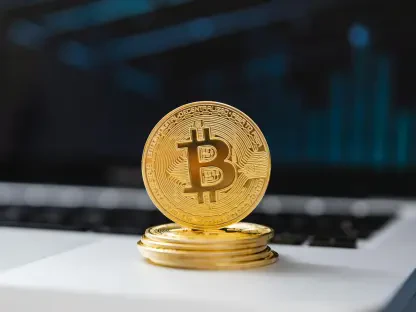In the heart of Brazil’s rapidly evolving gambling landscape, a striking legal case has brought to light a troubling gap in the nation’s fight against money laundering through illicit betting platforms, exposing critical weaknesses in anti-money laundering (AML) legislation. The story of Wellington Alves de Souza, a gambler who sought to recover substantial winnings from an unauthorized online betting site, has highlighted the personal risks faced by individuals and raised urgent questions about the accountability of financial facilitators in such transactions. After depositing a modest sum and winning a significant amount, Wellington found himself entangled in a legal battle when his funds were frozen, with no recourse against the shadowy operator or the payment intermediary involved. This case not only underscores the dangers of engaging with illegal platforms but also emphasizes the broader implications for Brazil’s newly legalized gambling market, pointing to a pressing need for reform to curb black market activities and protect consumers from exploitation.
Legal Precedent and Individual Accountability
The details of Wellington’s predicament paint a stark picture of the challenges within Brazil’s legal framework for gambling-related disputes. Having deposited R$3,000 (approximately US$563.93) on an illegal online platform, he won R$56,000 (about US$10,526), only to have his account frozen when attempting to withdraw through SecurePayments Ltda, a payment intermediary. Unable to reach the underground operator, Wellington sued the payment company, hoping to recover his funds. However, an appeals court in Brasilia ruled unanimously that the intermediary bore no responsibility, labeling it merely a facilitator without influence over the gambling outcome. Under Brazil’s Consumer Protection Code, no causal link was found between the intermediary’s actions and Wellington’s losses. Instead, the court shifted the blame to him, charging him with participating in illegal gambling. This decision reflects a legal stance that prioritizes individual accountability over systemic oversight, leaving consumers vulnerable when engaging with unauthorized platforms.
This ruling has sparked varied reactions among stakeholders in Brazil’s gambling sector, with licensed operators largely supporting the court’s emphasis on penalizing black market participation. The decision is seen as a potential deterrent, discouraging gamblers from turning to illegal sites that undermine the regulated industry. Yet, the precedent also reveals a significant loophole in AML legislation, as it absolves payment intermediaries of liability for enabling transactions to illicit platforms. Critics argue that this gap allows financial facilitators to operate without sufficient scrutiny, indirectly fueling money laundering activities. The case of Wellington serves as a cautionary tale, illustrating how current laws fail to address the role of intermediaries in perpetuating illegal gambling. As the regulated market grows, this lack of accountability poses a persistent threat to both consumer protection and the integrity of financial systems, prompting calls for a reevaluation of legal responsibilities in such transactions.
Financial Oversight and Regulatory Challenges
A deeper examination of Brazil’s AML framework reveals systemic issues that extend beyond individual cases like Wellington’s, pointing to the urgent need for stronger financial oversight. The court’s exoneration of SecurePayments Ltda highlights a critical flaw: payment intermediaries are not held accountable for processing funds to illegal gambling sites, even when such transactions enable money laundering. Experts in the field, including Thiago Horta Barbosa, Integrity Manager for Latin America at Genius Sports, have expressed concern over this lack of responsibility. Barbosa suggests that future judicial rulings and regulatory adjustments are likely to impose stricter liability on these entities, particularly since existing rules already prohibit mediating deposits for unauthorized platforms. Without such changes, the black market continues to thrive, exploiting gaps in oversight to move illicit funds under the guise of legitimate transactions, thereby undermining efforts to build a transparent gambling industry.
Addressing this loophole through financial regulation is seen as a cornerstone of dismantling illegal gambling networks in Brazil, with legislative efforts already underway to tighten controls. Bill 2,359/25, currently under consideration in Congress, proposes to hold banks and payment institutions accountable for facilitating transactions to unauthorized platforms, classifying negligence as an administrative infraction. If passed, this legislation would empower the Central Bank and the Securities and Exchange Commission (CVM) to impose sanctions while mandating financial institutions to monitor and report suspicious activities. Enhanced transaction filters and detailed record-keeping requirements are also part of the proposed measures, aimed at preemptively blocking risky customers. Experts agree that targeting financial flows offers the most effective strategy to disrupt the black market, safeguard consumers, and reinforce the regulated sector. This push for reform signals a growing recognition that without robust oversight, illicit gambling will persist as a conduit for money laundering.
Path Forward for Systemic Reform
Reflecting on the broader implications of Wellington’s legal battle, it becomes evident that Brazil stands at a crossroads in its efforts to combat money laundering through gambling channels. The case exposed not just the personal toll on individuals engaging with illegal platforms but also the systemic inadequacies that allow such activities to flourish unchecked. The ruling against Wellington, while reinforcing individual responsibility, did little to address the role of payment intermediaries in enabling these transactions. This gap in accountability remains a glaring issue, as financial facilitators escaped scrutiny despite their involvement in processing funds for unauthorized sites. The debate that ensued among licensed operators, who favored strict penalties for black market participants, and experts advocating for tighter controls, underscored the complexity of balancing consumer protection with effective regulation in a nascent industry.
Looking ahead, the lessons from this case pave the way for actionable steps that could reshape Brazil’s approach to AML in the gambling sector. The potential passage of Bill 2,359/25 emerges as a beacon of hope, promising to impose greater responsibility on financial institutions and enhance oversight of suspicious transactions. Beyond legislation, there is a clear need for collaborative efforts between regulators, licensed operators, and technology providers to develop advanced monitoring tools and transaction filters. These measures aim to close financial loopholes that sustain the black market, ensuring that illicit funds can no longer flow undetected. Wellington’s struggle, though a personal setback, became a catalyst for broader dialogue on reform, reminding stakeholders that protecting the integrity of Brazil’s gambling market requires a multifaceted strategy. As discussions continue, the focus shifts to building a resilient framework that prioritizes both consumer safety and systemic accountability.









